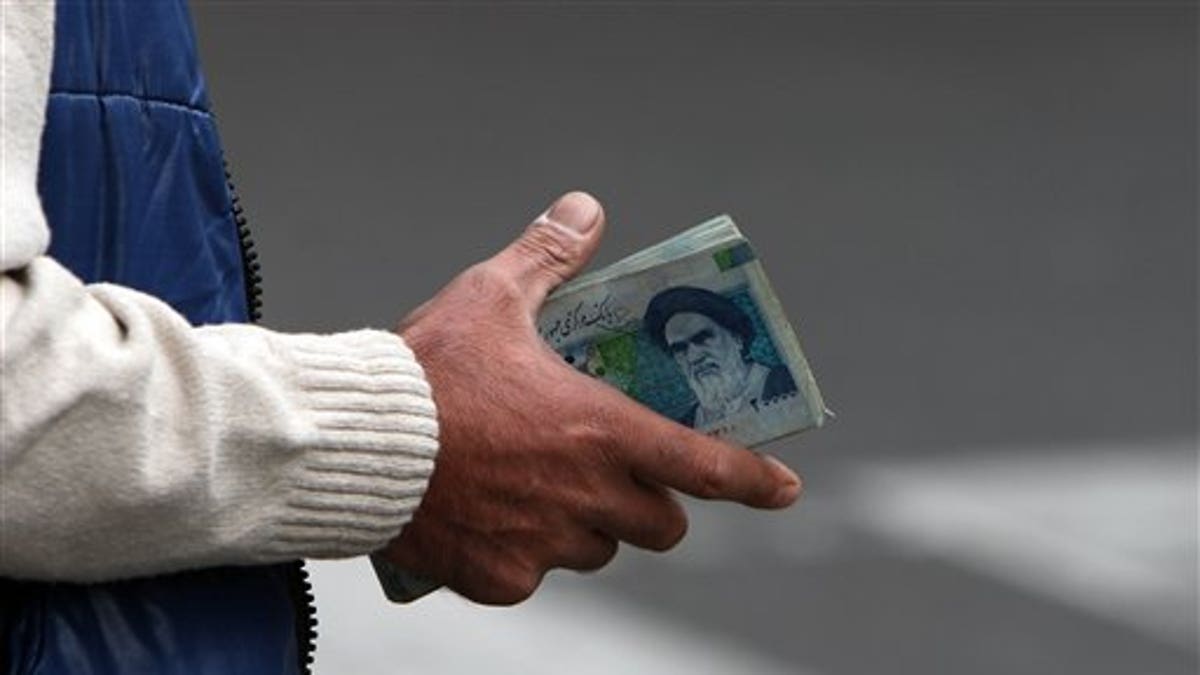
Oct. 30, 2008: In this file photo, an Iranian money changer holds currency with Ayatollah Ruhollah Khomeini's image in Tehran, Iran. (AP)
BRUSSELS – Officials from the 27 countries that make up the European Union are beginning Thursday the process of trying to thrash out an agreement on banning the purchase of Iranian oil in the hope of choking off funding for the country's nuclear program.
Iranian officials maintain the program is meant solely for peaceful purposes. But the international consensus is that it is aimed at building nuclear weapons.
On Tuesday, French Foreign Minister Alain Juppe said there was "no doubt" Iran was moving toward a nuclear weapon. Juppe said new sanctions on Iran could include targeting its Central Bank and imposing an Iranian oil embargo.
EU foreign ministers agreed in December to work toward a ban on importing Iranian oil. An EU official said Thursday that significant issues remain and no agreement is expected before the end of January. The official spoke on condition of anonymity in order to discuss confidential information.
The official said that among the unresolved issues is how long existing contracts for the purchase of Iranian oil would remain exempt from the ban. If they were exempted for long periods of time, that would significantly weaken any proposed embargo.
But some EU members, notably Greece, are heavily reliant on Iranian oil.
Officials from EU countries are meeting in Brussels to discuss the issues but are not expected to reach an agreement Thursday.
Juppe was quoted by Radio France late Thursday as saying he hoped an embargo could be adopted when EU foreign ministers meet again in Brussels on Jan. 30. However, that meeting may well be postponed, because a summit of EU heads of government has now been called for that same day.
Regarding sanctions on Iran's oil and its central bank, the country's semiofficial Isna news agency quoted Iranian Foreign Minister Ali Akbar Salehi on Thursday as saying: "We are always ready for these hostile sanctions and we are not concerned about them."








































